- Home
- Tawdra Kandle
The First One Page 4
The First One Read online
Page 4
We were all quiet on the ride to church. My mind was a jumble of everything that had happened over the past few days: visits to the funeral home, meeting with the priest who was doing the service today . . . the endless drop-in company as my mother’s friends and my father’s colleagues brought by casseroles, and plates of cookies, cakes and pies. Apparently death made the surviving family hungry.
Iona must’ve been thinking along the same lines. From the back seat, she leaned forward. “Did anyone remember to ditch Mrs. Shulman’s tuna nastiness? I’d hate for it to be accidentally put out today with the other food.”
Maureen wrinkled her nose and made a gagging noise. “Yeah, that sucker went down the glippety-glop last night. And it was followed by a whole box of baking soda, because it stunk up the whole dam—dang kitchen. Sorry, Ma.”
My mother sighed. “She means well. They all mean well. Mrs. Schulman thinks all Catholics eat fish every Friday, so that’s why she made the tuna. Bless her heart.”
Iona snorted. “If the Pope had to eat that crap, he’d change the church laws, even about Fridays in Lent. Slow down, Flynn. The turn’s coming up.”
I bit back a retort. Yeah, I’d been away for a long time, but I’d been going to this church since I was born. I was pretty sure I knew the way.
“People are already here.” My mother stared out the window at the cars that lined the curb in front of the large gray stone church.
“Father Collins promised to keep them outside until we . . . had some time to get settled.” Maureen’s eyes slid away, and we were all silent as I parked the car in the back of the church. I opened the door for my mother, and together we made our way inside. I brought up the rear, as dread threatened to choke me.
The sanctuary was empty, save for the open casket in front of the altar. My mother came to an abrupt halt just inside the doors, her hand still poised over the holy water chrism.
“Mrs. Evans.” Mr. Hughes, the funeral director, hurried in from the door on the other side. “There’s quite a line outside the church, which is of course so gratifying . . . Mr. Evans must’ve been very well-loved.”
“He was.” Iona spoke softly. “Everyone loved Daddy.”
“We said a closed casket.” Mom moved again, crossing herself and stepping forward. “We were very clear. That’s what Brice wanted. He always said he didn’t want people gawking at him when he wasn’t there to stare back.”
“Of course, of course. We understand. But I thought perhaps before we opened the doors, we’d allow you a few moments alone. To say good-bye.”
“We already said our good-byes.” Mom stared down Mr. Hughes. He took a step back, and I pitied him for a minute; my mother had made many a lesser man cower with that look.
“Flynn hasn’t.” Maureen glanced at me. “He didn’t get to . . . well. He wasn’t at the hospital with us. Maybe he should have the chance.”
Mom raised her eyebrows at me. “Flynn? Would you like a moment with your father before they—close things up and people come in?”
I opened my mouth to say no. I knew it wasn’t him. I had no doubt my father was in the Great Beyond, sharing a cold one with St. Peter and cracking jokes with St. Patrick. But it struck me, in a painful, crushing blow, that this would be the last time I’d ever be able to see my dad’s face. That face that had grinned at me as he teased my mom during hundreds of family dinners, had offered me steadfast encouragement at each turning point in my life, had shone with pride nearly every day of my life . . . I was never going to see it again.
“Yes.” I nodded. “If it’s okay.”
“Of course it’s okay, son.” My mother patted my back. “Do you want me to come up with you?”
“No, I’ll just be a minute.” I leaned to kiss her cheek and turned to walk down the aisle.
The casket was a solid mahogany, the dark wood polished to a gleaming finish. The rolling cart upon which it sat was draped in black cloth, just in case anyone were to forget that we were here for a solemn occasion. I laid my hand on the closed part of the lid that covered my father from the waist down, and I remembered the very first funeral I’d ever attended. It was one of my father’s uncles who lived in Philadelphia, and I’d driven up north with him because my mother and the girls had something going on. A Girl Scout camping trip? Maybe.
At any rate, I couldn’t have been more than seven or eight. I’d sat in the church next to my father among all these ancient Irish, women who smelled like mothballs and men whose noses were perpetually red. There was loud weeping, although, Pop had told me, Uncle Emond had been a hundred years old.
I’d stared at the coffin, suddenly terrified. Reenie had pestered me before we left, reminding me that I was going to be in a church with a real dead body. And that dead body was right there. I fidgeted as fear gripped me.
“D’you think he’s wearin’ pants?” Pop’s brogue, which had softened over the years in this country, re-established itself whenever we were around his family. I turned wide eyes to look up at him.
“What do you mean?”
“They keep the lower lid closed, see, and I’m remembering old Uncle Emond didn’t much like to wear clothes. Seems to me he’d rather go on to his reward minus his trousers. Dare me to peek?”
“Pop, no! You can’t. Mom would have a fit.” I might’ve been young, but I was old enough to realize my mother had a way of knowing everything, even from almost a thousand miles away.
Pop’s shoulders shook with silent laughter. “You’re not wrong, my boy. All right, then, we’ll just have go without satisfying that particular bit of curiosity.”
Now I smiled, thinking of that day and feeling my father’s hand on my back. “Dare me to look, Pop?” I took a deep breath and forced my eyes to the opened lid.
His dark hair, threaded with silver, lay on the ridiculous white tufted pillow. Seriously, how stupid were we humans that we thought dead people needed to be comfortable? His eyes were closed, and they’d arranged his mouth in what I guessed they’d thought was a natural pose. But anyone who knew my dad would know that his lips were perpetually curved into a teasing half-smile, not bunched up like he’d tasted something sour.
His hands were folded piously across his chest, a white rosary threaded between his fingers. I ventured to touch his wrist where it showed below the cuff of his sports coat. But although it looked like my father’s arm, it was not. The skin was icy against my fingertips and unnaturally firm. I recoiled, stifling a gag.
“Okay, then, Pop.” I drew in a deep breath through my nose. The cloying scent of the flowers that covered the altar threatened my stomach again, but I clenched my jaw and ignored it. “Okay. So I know you’re not really here, not in this box, but on the other hand, I can’t see you missing out on a party like today. I just wanted to tell you . . . no one ever had a better father than I did. What I learned from you . . . how you raised us . . .” My throat closed again, but this time it had nothing to do with the flowers or the body in front of me. “Well, you did good, Pop. Someday I’m going to have a kid, and if I can be half the father you were, I’ll be doing all right. I only wish I’d told you more. I wish I’d seen you more. I wish . . .” They were endless, the wishes and regrets, and when I glanced down, I was surprised to see splotches of wet on the edge of the white satin.
Behind me, the murmuring swelled, and I realized my time was dwindling. I looked down at his face one more time, and the tears in my eyes blurred my vision just enough that the contrived expression vanished, and for a flash of time, I could see him again, the grin, the twinkle and the light.
When I blinked, it was gone, and once again the cold body lay in front of me. I turned around and signaled to the funeral director.
“I’m ready. You can . . . close it.”
My mother came up behind me, leaning against my shoulder. “Are you all right, sweetheart?”
I managed a crooked smile. “Of course. I’ve got all my best girls here to keep me in line. How could I not be?” I caught Mr. Hughes�
�� eye and turned Mom, steering her away from the two men who were lowering the lid on the casket. “I think they’re about to open the church doors. You okay?”
She inhaled once, closing her eyes, and nodded. “Yes. We’ll get through this visitation, and then the Mass . . . and the wake. And then . . .” Her voice trailed off, and I knew what she was thinking. Yes, and then what? That was the million-dollar question.
My sisters joined us halfway up the aisle, and within a few moments, Mr. Hughes guided us back up front. Another man opened the doors and began to shepherd people toward us.
For two hours, we nodded, smiled, shook hands, hugged people we hardly knew and repeated the same words over and over.
“Thank you. Thank for you coming. We appreciate your kindness. Yes, we’re hanging in there.”
For me, of course, there were a few variations: “Yes, I got back into town about five days ago. No, I’m not sure how long I’m staying. Yes, it’s been a long time.”
At the start of the visitation, the people who passed through the line tended toward acquaintanceship: neighbors of my sister Iona and her husband, Maureen’s patients—well, their owners, anyway; Reenie was a veterinarian—and other people who couldn’t stay for the service. None of them spent more than a few minutes with us, expressing sympathy, offering condolences and getting the hell out. I didn’t blame them. As time went on, more family members showed up, including my dad’s brother and sister-in-law, who’d flown down from Philly, and of course my mother’s parents, who lived only about an hour south of us on the Florida coast. These encounters were longer and more emotional.
Interspersed between the two ends of the spectrum were people I hadn’t seen in years. Many of my father’s co-workers at the high school were also my old teachers, and there was more than a few teary hugs.
“Flynn Evans. Look at you.” Mrs. Pruitt had retired two years before, but she still managed to make me break out in a cold sweat with her snapping blue eyes. “You’re the image of your father.” She tugged a lace-edged hankie from her cleavage and dabbed at her nose. “God rest his soul.”
I swallowed back a new wave of unmanly tears. “Thank you for coming, Mrs. Pruitt. You look great. How’s retirement?”
She waved her hand in front of her face. “What’s retirement? I’m still there at the high school, only now they call me a volunteer and don’t pay me.”
My father had told me that the administration had practically forced the English teacher out of her job after she turned seventy. I figured the volunteer role was probably some kind of compromise.
“How long are you planning to stay in town, Flynn? I’d love to hear about where-all you’ve been. I follow your pictures in the magazines. Makes me proud. I show them to my students and tell them, ‘See what hard work gets you?’”
“Hard work, huh? Weren’t you the teacher who told my parents I was lazy?”
Mrs. Pruitt rolled her eyes. “You were. Smart as whip, but didn’t want to do the work unless it suited you. You remember when I assigned y’all A Farewell To Arms and you refused to read it?”
I did remember. Hemingway was never my favorite, and I’d tried to sweet-talk the teacher into letting me read Kerouc’s On The Road instead. It hadn’t gone over well.
“You’ll be happy to know I did read it eventually. But I still don’t much care for Papa.”
“I’m proud of you, Flynn.” She patted my cheek. “If you get a chance, stop in and see me before you leave.”
“I’ll try. And thanks for being here today, Mrs. Pruitt.”
She touched her eyes with the handkerchief. “And where else would I be? Your daddy and I were buddies. I’m going to miss that man.” She sniffled dangerously, and I prayed that she’d move on before the tears came.
Just before she stepped away, she turned back, her brow furrowed. “Flynn, have you been in touch with Alison yet?”
I froze. I knew this was bound to happen, and I’d have been lying if I’d said I hadn’t been scanning the crowd, wondering if she’d come by. But no one had mentioned her name until now.
“Ah, no. I haven’t, uh, seen her.”
Mrs. Pruitt nodded, her face clouding. “I was very sorry when I heard the two of you didn’t work out. As you can imagine, I saw a lot of high school romances in my time, and most of them I could tell weren’t going to last. But after what that girl went through, and how you were always there for her . . . I thought maybe . . . well.” She patted me again. “These things happen. I see her every now and then. Not often, since she doesn’t come into town too much.” She regarded me steadily. “Her little girl is very pretty. Quite a charmer, too.”
That suffocating feeling was creeping back. “That’s great.” I glanced over my former teacher’s shoulder, hoping she’d get the move-it-along message. The last thing I needed was to hear or think about—her.
“I’m sure I’ll see you later.” Mrs. Pruitt smiled a little as she moved past me. I caught Reenie’s eye, and she hugged my arm.
“Hanging in okay, little brother?”
I covered her hand with my own. “Sure. How about you? Need anything? Water, tissues?”
She shook her head. “No, thanks, I’m—oh.” She frowned, and I followed her gaze to the doorway of the church, where a tall man with brown hair had just come inside, holding the hand of a red-headed woman who was at least a foot shorter. Behind them, another man trailed. His dark blond hair was perfectly styled, and his clothes screamed that they had not come from any of the stores in Burton.
The first guy turned to speak to the second, and recognition sparked. Sam Reynolds. Older, a little more filled-out than when I’d seen him last, but no doubt it was him. I didn’t know the woman whose hand he held, but the second man—yep, it was Alex Nelson. My eyes darted back to the door before I could stop them, but no one else followed them inside. Not her. She wasn’t here.
Of course she wouldn’t come. I’d left no doubt in her mind during our last conversation, when I’d laid down the ultimatum: leave Burton with me, or we were over. At the time, in the moment, I thought I’d meant it. A few months later, I hadn’t been so sure, but by then, she’d apparently gotten over me, since it was about that time she’d married Craig Moss.
Reenie laid her cheek against my shoulder, bringing me back to the moment. “She’s not with them. I didn’t think she’d come.”
“She was your best friend.” I didn’t try to hide the anger in my voice.
“She was yours, too. And your girlfriend. And . . .” Maureen raised one eyebrow. “More.”
“That was a long time ago. Lot of water under the bridge.”
Before she could answer, Sam was in front of us, his eyebrows drawn together and his mouth tight. I watched him embrace my mother, carefully, kiss Iona on the cheek—that’s right, she’d been in his class—and then envelope Maureen in a hug.
“Reenie. I’m so sorry.” He stood up again, looking down into her eyes. “Your dad . . . he was one of the best men I ever knew.”
My sister, who thus far today had been stoic, bit her lip as tears slid down her cheek. “Thank you, Sam. Thanks for being here.” She leaned to the side to take the hand of the red-haired woman next to Sam. “Meghan. Thank you. I’m so glad you came.”
The younger woman had wide green eyes, which now swam with tears. “Maureen, I’m so sorry. I know . . . it’s hard. If there’s anything I can do . . .”
Reenie folded her into a hug. “You being here is enough. I can’t tell you how much I appreciate it.” She stood back and glanced up at me, just the slightest edge of trepidation in her eyes. “Flynn, you remember Sam, of course. And this is Meghan, his girlfriend.”
“Meghan Hawthorne.” She extended her hand. “I’m glad to meet you, although I’m sorry it’s under these circumstances.”
Before I could answer her, Sam was gripping my shoulder. “Flynn. I’m sorry, man. You doing okay?”
A world of memories crowded into my head as I looked at Sam Reynolds. When I
first knew him, he was a senior in high school, the stereotypical big man on campus: captain of the football team, president of his class and destined for greatness. After I’d started dating Ali, Sam had morphed into the guy who gave me the stink eye every time I was at their house or whenever he caught us holding hands at school. The dude took protective big brother to the extreme.
And after their parents were killed, Sam Reynolds became the most important person in the world to my girlfriend. We’d had a talk about a month after the accident. Sam had just graduated from high school, and he was trying to figure out how to hang on to their family farm. He had a scholarship to UGA, but he was giving it up in order to stay home so that his little sister didn’t have to move in with their grandparents.
“Listen, Evans. I see how you look at my sister. I get it that you two think you’re in love. Whatever. I’m not going to say you are or you aren’t. My parents—” His voice caught. The pain was still fresh. “They liked you. Said you were a good kid. Me, I don’t have time to worry about you. From here on out, my number one priority is Ali. To keep both of us fed and clothed, I need to make this farm work. I can’t be following you guys around, so I need you to man up and make sure my sister is protected and treated like the treasure she is. Be the shoulder she needs when she cries. Don’t let anyone give her shit. Can you handle that?”
I’d swallowed hard and nodded, but it felt like a moment that needed more. “Yes, sir. Sam. I can do that. Ali, she’s . . . I’ll watch out for her. I promise, no one’ll ever hurt her.”
Sam had stared at me. It felt like he was seeing into my soul. “Good. Oh, and Evans.” He laid one heavy hand on my shoulder. “If you turn out to be the one who hurts her, in any way, I’ll tear off your balls and stuff them down your throat until you choke. Got it?”
Now as those same brown eyes fastened onto me, I remembered his words with sudden clarity. In the end, I had been the one who’d hurt his little sister. At least, it might look that way from a certain point of view. While he didn’t exactly look like he was planning to rip off my balls today, it occurred to me that avoiding Sam Reynolds for the remainder of my stay in Burton might not be a bad idea.

 Fearless
Fearless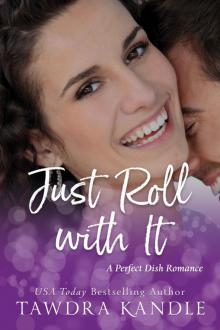 Just Roll With It (Perfect Dish Romances Book 4)
Just Roll With It (Perfect Dish Romances Book 4)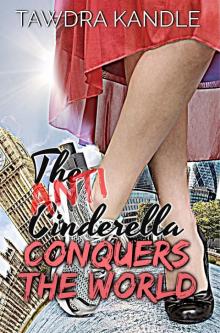 The Anti-Cinderella Conquers the World
The Anti-Cinderella Conquers the World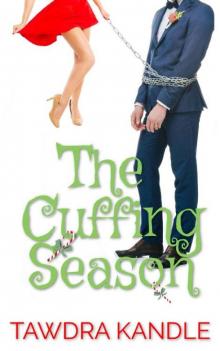 The Cuffing Season (The Anti-Cinderella Chronicles)
The Cuffing Season (The Anti-Cinderella Chronicles) Just Desserts (Perfect Dish Romances Book 2)
Just Desserts (Perfect Dish Romances Book 2)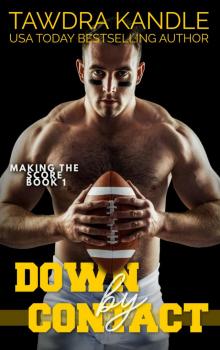 Down By Contact: A Making the Score Football Romance
Down By Contact: A Making the Score Football Romance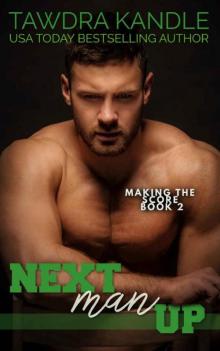 Next Man Up (Making the Score Football Romance Book 2)
Next Man Up (Making the Score Football Romance Book 2) Not Broken Anymore
Not Broken Anymore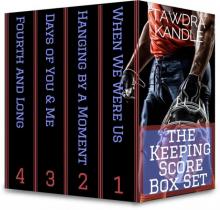 The Keeping Score Box Set
The Keeping Score Box Set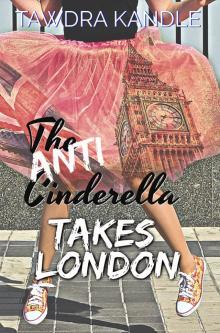 The Anti-Cinderella Takes London
The Anti-Cinderella Takes London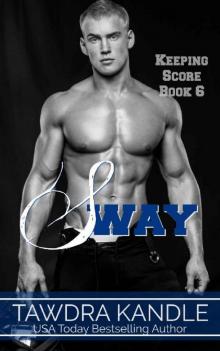 Sway (Keeping Score Book 6)
Sway (Keeping Score Book 6)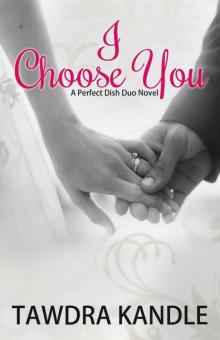 I Choose You
I Choose You Death Over Easy
Death Over Easy Endless
Endless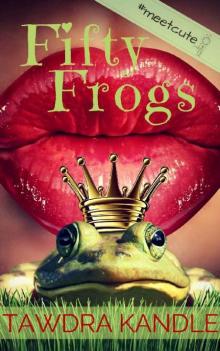 Fifty Frogs (The Anti-Cinderella Chronicles Book 4)
Fifty Frogs (The Anti-Cinderella Chronicles Book 4) I Choose You (Perfect Dish Romances Book 3)
I Choose You (Perfect Dish Romances Book 3)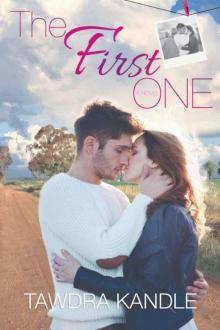 The First One
The First One Best Served Cold (Perfect Dish Romances Book 1)
Best Served Cold (Perfect Dish Romances Book 1) Love in a Small Town Box Set 1
Love in a Small Town Box Set 1 Stardust on the Sea
Stardust on the Sea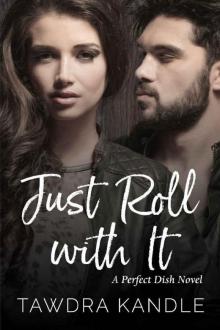 Just Roll With It (A Perfect Dish Book 4)
Just Roll With It (A Perfect Dish Book 4) The Anti-Cinderella
The Anti-Cinderella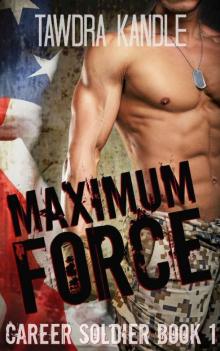 Maximum Force: A Career Soldier Military Romance
Maximum Force: A Career Soldier Military Romance The Last One (The One Trilogy #1)
The Last One (The One Trilogy #1) Underneath My Christmas Tree
Underneath My Christmas Tree The Path
The Path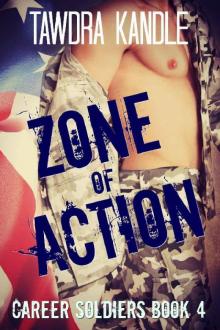 Zone of Action: A Career Soldier Military Romance
Zone of Action: A Career Soldier Military Romance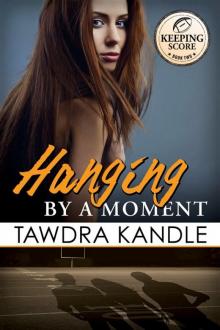 Hanging by a Moment (Keeping Score #2)
Hanging by a Moment (Keeping Score #2) Fifty Frogs
Fifty Frogs Age of Aquarius
Age of Aquarius Always Our Love
Always Our Love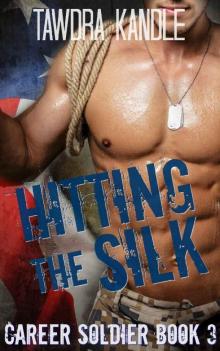 Hitting the Silk: A Career Soldier Military Romance
Hitting the Silk: A Career Soldier Military Romance Always My Own (Always Love Trilogy #2)
Always My Own (Always Love Trilogy #2) Days of You and Me
Days of You and Me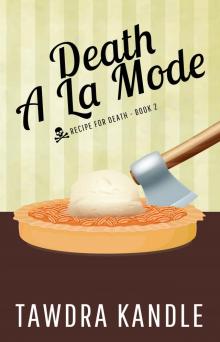 Death A La Mode
Death A La Mode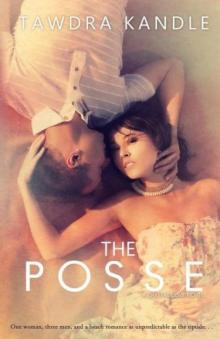 The Posse
The Posse Always For You (Always Love Book 1)
Always For You (Always Love Book 1)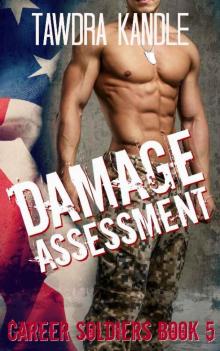 Damage Assessment: A Career Soldier Military Romance
Damage Assessment: A Career Soldier Military Romance The Plan
The Plan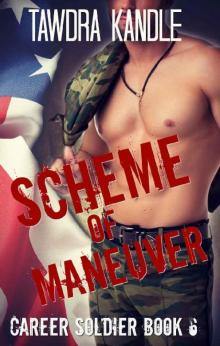 Scheme of Maneuver: A Career Soldier Military Romance
Scheme of Maneuver: A Career Soldier Military Romance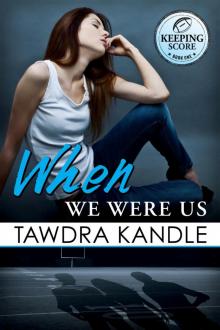 When We Were Us (Keeping Score, #1)
When We Were Us (Keeping Score, #1)